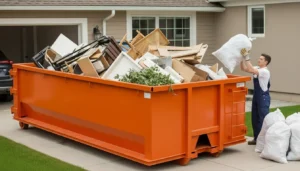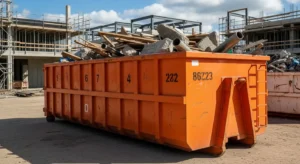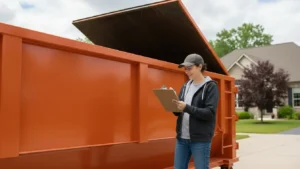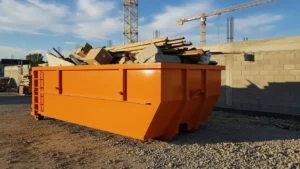If you’ve ever rented a dumpster, you know that choosing the right size is crucial. Picking the wrong one can lead to overpaying, multiple pickups, or dealing with waste overflow. Whether you’re tackling a home renovation, landscaping project, or cleaning out the garage, selecting the right dumpster size can save you time and money.
In this blog post, we will help you understand how to choose the best dumpster rental in Fort Myers for your project, making sure you save both time and money.
Consider the Scope of Your Project
Before you decide on a dumpster size, understanding your project’s scope is essential. Is it a small home cleanup, a medium-sized renovation, or a large construction job? The size of your project will significantly impact the size of the dumpster you need.
For example, small projects like cleaning out a basement or attic may only need a 10-yard dumpster, while larger tasks like remodeling a kitchen or bathroom may require a 15 or 20-yard dumpster. For commercial construction or extensive home renovations, a 30 or 40-yard dumpster might be necessary to accommodate the amount of waste generated. Evaluate your project from start to finish and consider both the amount and type of waste you expect to generate. If you’re unsure, it’s better to opt for a slightly larger dumpster.
Read More: Common Dumpster Rental Problems and Their Solutions
Estimate the Volume of Waste
Estimating the volume of waste is one of the most important steps when choosing the right dumpster size. A 10-yard dumpster typically holds the equivalent of 3-4 pickup truck loads of debris, making it ideal for smaller projects like clearing out a garage or small renovation.
A 20-yard dumpster, on the other hand, can handle 6-8 truckloads and is better suited for medium-sized projects like kitchen or bathroom remodels. For larger renovations or construction sites, you might need a 30-yard or even a 40-yard dumpster, which can handle the waste from larger demolition jobs, roofing projects, or major cleanouts.
Account for Different Types of Waste
Different types of waste may require different dumpster sizes. If your project involves disposing of large furniture, appliances, or construction debris, you’ll need a bigger dumpster to accommodate these bulky items.
For instance, while household waste like boxes of clothes or light trash may fit into a smaller 10 or 15-yard dumpster, heavier materials like drywall, shingles, or lumber will need more space. Additionally, some waste types may require special handling or may not be allowed in a standard dumpster. This includes hazardous materials, electronics, or certain chemicals. It’s important to clarify with the rental company what can and cannot be disposed of in your selected dumpster size.
Plan for Extra Capacity
Unexpected debris can accumulate during any project. It’s wise to plan for extra capacity when choosing a dumpster size. Having extra space will prevent the hassle of ordering a second dumpster if you run out of room, which can result in delays and additional costs.
If you’re working on a project that might produce more waste as it progresses—like a home renovation or a major cleanout—consider opting for a larger dumpster from the beginning to avoid running out of space mid-project. A 20 or 30-yard dumpster often provides enough room for most projects, giving you a safety net without overpaying. Planning ahead will save you the stress of trying to fit everything in a smaller dumpster later on.
Understand Local Regulations
Local regulations play an important role in your dumpster rental process. Depending upon the location, there may be restrictions on where you can place a dumpster, how long you can keep it, or specific guidelines for waste disposal.
For instance, if your project is located in a residential area, you may need a permit to place a dumpster on the street or sidewalk. Some neighborhoods also have limits on the size of dumpsters allowed. It’s important to check with your Residential dumpster rental company about any necessary permits or local rules to avoid potential fines. By being aware of these regulations, you can avoid any surprises that could delay your project.
Evaluate the Cost-Effectiveness of Your Choice
Dumpster rental prices are often determined by the size of the dumpster, the type of waste, and the rental duration. While you may be tempted to rent a smaller dumpster to save money, it could end up costing you more if it doesn’t accommodate your needs.
Renting a larger dumpster upfront is often more cost-effective than having to pay for an additional dumpster later on. Be sure to ask your rental provider about any extra fees for overfilling, extended rental periods, or additional pickups, so you can accurately compare prices and make the most cost-effective choice. Getting multiple quotes can also help you find the best deal while avoiding any hidden costs that might impact the overall price.
Need Help with Dumpster Rental in Fort Myers?
Choosing the right dumpster for your project doesn’t have to be complicated. At 98 Dumpster Rental, we offer a wide range of sizes to fit every need, from small cleanouts to large construction projects. Our team will help you determine the right dumpster size, ensuring you have enough room for all your waste while staying within your budget.
Don’t waste time or money on an inadequate dumpster—contact us today to find the perfect solution for your project in Fort Myers.




